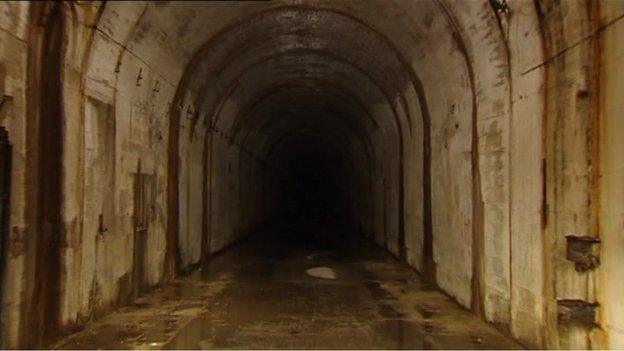Repeat of 1980s miners' strike fears revealed
- Published
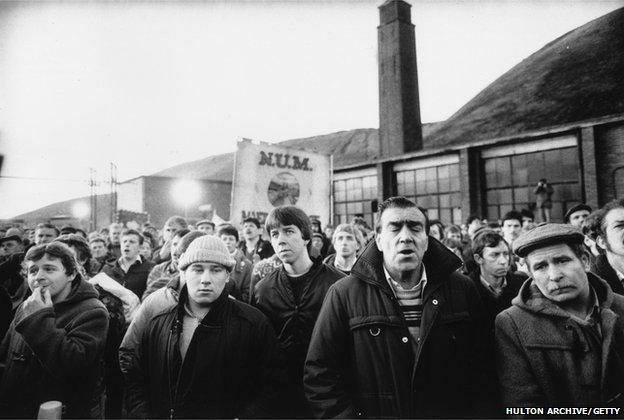
Miners at a rally in Maerdy in the Rhondda in March 1985 as their strike comes to an end
Conservative government advisers feared a repeat of the 1984-85 miners' strike the following winter, according to documents from the national archives.
They urged ministers to boost stocks of coal in readiness in case pit closures prompted fresh industrial action.
John Redwood, a future Welsh Secretary who was then an adviser, hailed the end of the strike as a "historic victory for common sense".
He said investment in new pits could give the coal industry a future.
The newly-released documents cover the end of the strike in March 1985.
'Ominous'
Businessman John Wybrew, energy adviser to the then prime minister Margaret Thatcher, was wary of another strike happening the following year.
He told her: "We should watch the weekly trends in industrial relations and output in NCB [National Coal Board] over next few months.
"If the climate is bad, and the outlook for next winter ominous, pre-winter endurance can and should be boosted rapidly."
"Whatever the outcome the NCB must not be deterred from pressing ahead with restructuring the coal industry.
"It is better to import coal for stockbuilding than throw good money after bad into reviving pits which have no future," he wrote.
John Redwood was head of the policy unit at No 10 at the time.
He wrote to the prime minister, saying: "For the first time for many years, there is a serious prospect of building a prosperous and expanding coal industry.
"But it can only expand if we invest in new pits, in low-cost production and if we close down the most expensive and outdated."
'Horrified'
The newly-released papers also reveal how Mrs Thatcher was briefed on the killing of a south Wales taxi driver by two striking miners.
David Wilkie was driving a strike-breaking miner to work at Merthyr Vale colliery in November 1984 but died on the Heads of the Valleys road when two men dropped a concrete block from a bridge onto his car.
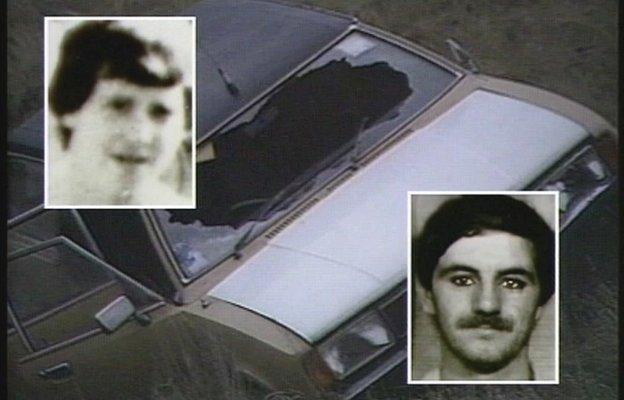
Dean Hancock and Russell Shankland were convicted of murder, reduced to manslaughter on appeal
Informing Mrs Thatcher of what had happened, her press secretary Bernard Ingham made clear he had already briefed the media of her views.
"I have said you are horrified and utterly condemn this murderous activity," he wrote.
Mrs Thatcher later said publicly: "My reaction is one of anger at what this had done to a family of a person only doing his duty and taking someone to work who wanted to go to work."
Dean Hancock and Russell Shankland were jailed for life in May 1985 for murder. The convictions were reduced on appeal to manslaughter, and they were released in November 1989.
Mrs Thatcher's ministers considered launching the controversial poll tax in Wales before England, according to other files just released.
The documents released by the National Archives also show Mrs Thatcher was warned by her Welsh Secretary that funding cuts would have "most damaging" political effects.
They also revealed there were plans to hide art treasures in underground tunnels in the Rhydymwyn Valley works, near Mold, if a civil or nuclear emergency arose during the 1980s.
- Published30 December 2014
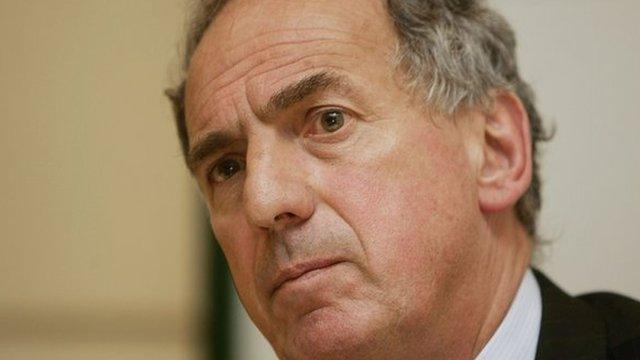
- Published30 December 2014
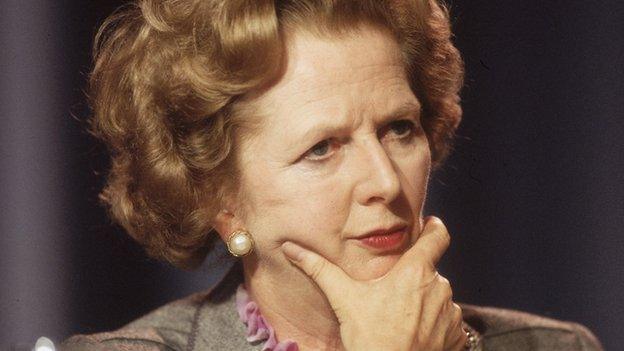
- Published30 December 2014
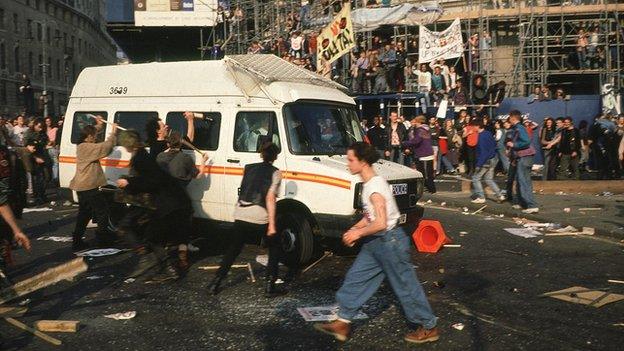
- Published30 December 2014
